- Home
- Anne Stuart
Special Gifts Page 2
Special Gifts Read online
Page 2
And most unpleasant of all was the possible connection with the disappearance of Mary Nelson, a pretty, thirty-two-year-old blond housewife, and the terrorist kidnapping of Shari Derringer, the blond, thirty-year-old daughter of the secretary of state.
So far they’d been able to keep that one under wraps. She’d been snatched three days ago, and word from the kidnappers was ominously vague. It had been with a real chill that Sam Oliver had looked at the picture of Mary Nelson’s pretty face and recognized the resemblance to the kidnapped Washington socialite.
He hadn’t had time to brief his superiors. There was a task force working on the Derringer case, and he wasn’t really involved. This might turn out to be a wild-goose chase, and then again, it might not. In the meantime, the less said the better. Kempton and his boys were busy enough following a thousand red herrings—Sam could follow his own lead in peace.
Provided they landed in one piece. Sam looked out the window of the small Army plane into the swirling snowstorm and shrugged. It had been years since he’d felt something as mundane as human fear. If the pilot didn’t make it, there wasn’t much he could do about it. If he did mate it, then it would be time for Sam to get to work. Either way, it was out of his hands. Leaning back, he shut his eyes, emptied his mind and promptly fell asleep.
Chapter 2
SOMETIME DURING the night Elizabeth had thrown off her clothes, rather than turn down the comforting cocoon of her electric blanket. When the first sounds began to penetrate the thick wall of sleep that surrounded her, she resisted them, burrowing deeper, pulling the pillow over her head with a muffled groan. The pounding persisted, penetrating the thick feather pillow, penetrating the determined mists of sleep, penetrating all of Elizabeth’s natural protective instincts.
Slowly, in a sleep-drunk daze, she climbed out from under the pillow to peer at the clock. Three-thirty—she’d only slept nine hours when she needed a good fifteen or sixteen. She listened for a long moment. At least the damn pounding had stopped. If she didn’t have to get up to go to the bathroom she might be able to recapture sleep.
But she did have to get up. She was reaching for the thick flannel robe that lay on the chair next to her bed when she heard the new sound. The unmistakable noise of someone moving around in her living room.
She sat there, the flannel robe tight around her chilled body, and listened, with her ears, with her mind. Had she been too weary yesterday afternoon to lock her door? She couldn’t have been that careless when a serial killer was on the prowl, could she? Delicately she probed her mind for tendrils of fear. Had a burglar invaded her house? Or the so-called Colorado Slasher? There was no answering panic, no racing of her heart. She didn’t trust her instincts completely, but it appeared her nighttime intruder was probably harmless.
Quietly she rose to her feet, crossing the shiny wood floors and opening the door to the living room. The light from her bedroom flooded the dimly lit room, illuminating a tall, shadowy figure standing by her fireplace. He appeared to be in the middle of building a fire, and he turned at the sound of her presence with a surprising amount of self-possession.
“Can I help you?” she said politely, sounding more like a receptionist than a woman whose house had been invaded.
“Sorry I just barged in.” His voice was deep, pleasant, with what might have been, a long, long time ago, a trace of Texas in his accent. “I’m a stranded traveler. I knocked for a long time but I guess you didn’t hear me. I’m afraid I had to break a window, but I’ve taped it up for now. I’ll replace it, I promise. I hope I didn’t scare you.”
“You didn’t.” It was too dark to see him properly, particularly without her glasses. She could make out a tall, lean figure in the shadows, with snow melting on the shoulders of his parka and in his thick dark hair.
“You’re pretty brave, considering what I’ve been reading about in the local paper,” he said. “What if I’d been a rapist and a murderer?”
“You weren’t,” she said with calm assurance. “Did your car go off the road?”
“About half a mile away. I should have known better than to try to make it to Steamboat tonight.” His voice was rich with self-disgust. “I hope you don’t mind me breaking in like this. I would have frozen my . . . butt off if I’d stayed in the car.”
“Of course I don’t mind,” Elizabeth said, ignoring the sudden stirrings of uneasiness that crept across her shoulders. “I’ll make you some coffee while you call the road crew.”
“That would be great. But I’m afraid I’ve already called—they won’t be out till late morning at the earliest.”
She accepted that stoically enough. “Then I’d better get you some blankets. You can bed down on the couch. Would you like anything in the coffee to help you sleep?”
“Scotch would make me a very happy man,” he said, dropping a match on the fire and moving back into the shadows just as the firelight would have illuminated his face. “Johnny Walker, if you have it. And you needn’t bother with the coffee part.”
“I have it.” Still that uneasiness lingered. It wasn’t a question of physical danger from the dark, shadowy stranger. More just a sense that something wasn’t quite right. “My name’s Elizabeth Hardy.”
He moved then, crossing the room with an easy stride. As he came into the pool of light from her bedroom door she got her first good look at him, and the uneasiness increased.
He was a handsome man. His dark brown hair was cut short; his eyes seemed to be a dark blue, his face tanned and affable. But Elizabeth didn’t believe that handsome affability. He held out a hand, a strong, well-shaped hand with short nails and long, artistic fingers. “Sam Oliver,” he said.
She took his hand in hers, and a jolt of electricity shot through her. She dropped it, backing away in a badly disguised panic, and she recognized the expression of shock that paled his face. He must have felt the same reaction.
“Lots of static electricity,” she murmured. “I’ll get your drink.”
SAM OLIVER WATCHED her go. His hand still tingled from the sudden, shocking connection of flesh on flesh. It wasn’t that mystical, sensual reaction of two people who were sexually attracted to each other. Hell, Elizabeth Hardy was a small, quiet, almost plain woman, but those brown eyes of hers were unnerving. No, it was something else. Phil Grayson had tried to warn him, and he stared after his reluctant hostess with thoughtful eyes.
It had taken two hours to travel the fifteen miles from the airport to Phil Grayson’s modest ranch house, where he’d lived alone for the past three years since his wife took his daughters and left him. And then another three hours over Coors and Johnny Walker and frozen pizza while Phil tried to convince Sam that he wasn’t out of his mind.
“You gotta be kidding,” Sam had said at first. “A psychic? You really believe all that garbage?”
“No, I don’t believe all that garbage,” Phil had said, affronted. “But I don’t not believe it, either. Time and time again, Elizabeth has come up with stuff that no one could know. There’s no explanation for it, or at least none that I can find. All I know is that she goes into these sort of trances and something happens.
Sam leaned back. “Gimme a break, Phil. You’re too old for a midlife crisis.”
“Go to hell. You’re too young to be so closed-minded. Elizabeth has seen things. How else would she know about the Spandau Corporation?”
“That’s exactly what I intend to find out,” Sam said grimly. “And she’d better have a damn good reason for knowing.”
But Phil knew as well as Sam that there could be no good reason. The Spandau Corporation was one of the U.S. intelligence community’s greatest debacles, a disaster ten years old and still painfully fresh, from the president through the CIA down to every minor branch of military and government intelligence. They weren’t even given the option of forgetting.
It had been such a grand and glorious plan to begin with. The Spandau Corporation had been a mythical company, dreamed up by the CIA to serve as a c
over for infiltrating the various splinter groups of European and Middle Eastern terrorists. Sam Oliver had been one of the supposed employees; so had Phil Grayson.
But somehow, somewhere along the way, everything had gone wrong. Too much bureaucratic ineptitude, too many double agents, too many generals, too few soldiers. No one really knew for sure what had happened, but when the dust cleared, the plans for the controversial Unicorn missile, the secret accords signed between supposed enemy countries and the minute details of the U.S. contingency plans for the Middle East, Central America and Afghanistan were in the hands of the most virulent collection of international terrorists ever assembled. And just to rub salt into the wound, they called themselves the Spandau Corporation.
There hadn’t been much anyone could do to salvage the situation. The plans had to be scrapped, the Unicorn missile had to be replaced with the much less efficient MX missile, and the surviving agents had crawled back to the States to lick their wounds and salvage their pride. They’d managed to keep the name of the Spandau Corporation out of the public awareness, and only a few people even recognized it.
Sam stood there in Elizabeth Hardy’s darkened living room, listening to the sounds of her moving around in the kitchen. She had to know. Phil had taped his sessions with her, and Sam had spent an hour going over the tapes, listening for nuances in her speech, hesitation, guilt. That almost offhand mention of the Spandau Corporation was just too innocent, too accidental, to be believed. It had to be a deliberate taunt, a specialty of that organization over the years, tossed into the middle of something seemingly unrelated. And he was too used to distrusting everyone he met.
For one thing, she was too damn casual about a midnight intruder, especially with what might pass for a serial murderer loose in the area. Mary Nelson wasn’t the first young woman to disappear, she was merely the latest. No woman in her right mind would accept having her house broken into with such equanimity. One more strike against her, Sam thought. She’d delicately dropped her bombshell, then sat back to wait and see what happened. But she’d shown her hand by being so trusting, he thought. She would only be that relaxed with a strange man invading her home in the middle of the night if she were convinced she controlled the situation.
He was totally prepared for her to come out of that kitchen with a gun in her hand. She had small hands—he’d noticed that right away. A small, pale face, and a thick shank of hair hanging down her narrow back, the flannel robe drawn tight around a body that was too thin. At least she couldn’t hide a gun without great difficulty. And he was fast. His own gun was only a second out of reach—he could take her out before she could do more than aim.
He flexed his hand experimentally, every nerve alert as he stood there, waiting. He could hear the chink of ice, the slosh of whiskey in a glass, the hiss of water from the tap. And then she appeared in the doorway, the light behind her illuminating her narrow figure. She had a glass of whiskey in each hand, and there was no telltale sag in the small pockets of the worn flannel robe. Her feet were bare, her toes curled slightly against the cold, and it was those toes that decided him. There was something so small and vulnerable about them that Sam Oliver did something completely uncharacteristic. He went with his instincts and moved his hand away from the gun hidden in the pocket of his parka.
She smiled at him, a shy smile he didn’t believe, and handed him a tall glass of amber liquid. He’d taken a soothing sip of it before the significance of that sank in. She’d brought him a tall glass, two ice cubes and a dollop of water. Exactly the way he made it for himself, disdaining short whiskey glasses and too much ice. And all his suspicions flared forth again. He wasn’t a man who believed in coincidence.
He met her smile with a practiced one of his own. “Just the way I like it,” he said evenly. “How did you know?”
Only an extremely observant man would have seen that slight shadow cross her eyes. Her smile became more automatic, and she stalled, taking a sip from her own short, paler glass. And then she shrugged. “Just a lucky guess,” she said, moving away from him. “You must be exhausted. Let me get you some quilts, and then you can get some sleep. If I know the road crew, we’re pretty low priority out here—not enough people around to make it worthwhile. I’d be surprised if we saw them before noon. These winter storms can be pretty overwhelming—”
She was babbling, Sam thought distantly, and she struck him as a woman who seldom babbled. She was nervous, edging away from him.
“I’m sure they can be.” He kept his voice low and soothing. “You sure you don’t mind my taking advantage of your hospitality?”
She shook her head, and that heavy mane of dark brown hair swung around her narrow back. “Of course not. I couldn’t turn you out into a night like this. Take off your parka, and I’ll be right back.”
He watched her go. If she were an operative she’d know he had a gun in the parka, and her suggestion would hold a wealth of meaning. But she’d also know that he had at least one other weapon on him.
As a matter of fact, he had two. A very small, efficient snub-nosed gun in an ankle holster, and a knife tucked inside his left sleeve. Between the two of them he could take care of someone Elizabeth Hardy’s size. Even if that sleepy, slightly shy demeanor hid the nature and talents of a harpy, he could still manage to control her. Unless, of course, she’d poisoned the whiskey. He stared down at his glass.
But she’d have no reason to kill him, he thought. Not yet. He took another meditative sip and once again noted the perfect mixture she’d accomplished seemingly by accident. What else did she know about him?
She was back, carrying an armload of quilts. She dropped them on the sofa, looking pleased. “These should keep you warm. I’m sorry I can’t offer you more comfortable accommodations, but I don’t have any furniture in the guest room. Besides, it’s warmer in here.”
There was no pillow, Sam noticed. Of course, if she had no second bed, she probably had no extra pillows, but he couldn’t stop wondering just how much her bosses knew, how many intimate details the Spandau Corporation had discovered about his personal life.
“Got a pillow?” he inquired pleasantly.
ONCE AGAIN THE shadow darkened her eyes.
“A pillow?” she echoed stupidly. “Of course. I’m sorry, I must have forgotten.” She turned to go, glad to be out of the range of those unnerving eyes. Her hands shook slightly as she headed back toward the linen closet, which was surprisingly well stocked, a legacy from her Appalachian grandmother. Why in God’s name had she thought he wouldn’t want a pillow? And how had she known about the damn drink?
Stupid question to ask herself, she thought, curling her lip in disgust. She should have gotten used to knowing these things, to having unexpected, subconscious bits of knowledge crop up like that. If she were more alert, more careful, she wouldn’t have been caught out the way she had been, twice in the past ten minutes. Explanations were embarrassing and unbelievable, and she’d let herself slip.
It was odd, though, she thought, pulling out the thick feather pillow and grabbing one of the embroidered cases with Granny Mellon’s handmade lace. She didn’t usually come up with so much about one person. Maybe it was just an aftereffect of today’s session. She hadn’t had the chance to sleep it off, and maybe some of whatever came over her was still lingering, picking up on extraneous details.
He was watching her when she came back into the room, taking the pillow in those large, strong-looking hands of his, the skin tanned and dark against the snowy-white pillowcase. He’d taken off that enveloping parka, and he was leaner than she’d thought. In the bulky down he’d looked overwhelming; in the thick wool sweater he was pared down, whipcord lean and dangerous looking. She might almost have preferred the bulk.
She knew that danger wasn’t directed at her—of that she was certain. But Sam Oliver wasn’t a skier heading for Steamboat Springs on a snowy night, and he hadn’t found her house by accident. That knowledge was immediate and inescapable. The only way she was
going to know for sure that she was safe from him in every way, the only way she was going to recapture some of her desperately needed sleep, was to touch him.
She didn’t want to. That first, accidental touching had been powerful enough, setting off mental and emotional and psychic sparks that still had her reeling. But she hadn’t been questioning at the time. And the only way she could find out if she could trust her voices was to touch him.
It was going to be difficult, she thought. He was standing there, looking down at her, his arms wrapped around the white pillow and hugging it against his tall body. She wasn’t the sort to touch casually; it wasn’t in her nature to reach out and place a hand on his arm as she wished him a good night’s sleep.
He didn’t seem inclined to help her. “Thanks for everything,” he said with that faint hint of a drawl, clearly waiting for her to leave him. She could feel his eyes on her, those clear, dark blue eyes, but she couldn’t even begin to tell what he was thinking.
“Well, good night,” Elizabeth said. “I’ll just get the kitchen light.” She started to move past him.
“I can do it,” he said, moving at the same time.
They collided. His hands reached out to catch her arms, to steady her as she stumbled against him, and for a moment she was pressed against his chest. It was a warm, hard chest, with a steady heartbeat, and the wool was scratchy beneath her face. The long fingers on her upper arms were strong, flexing, and he smelled like Scotch and pizza. For a moment she shut her eyes, trying to read him.
But clearly he misread her hesitation. “I’m game if you are, lady,” he muttered under his breath, and before she knew what was happening, he’d tipped her face up to his, and his mouth came down on hers.
It was a raw, rough insult of a kiss. Elizabeth knew that immediately, recognized the deliberate, almost studied sensuality of his openmouthed kiss, his tongue rudely catching h-1q-ers and forcing it back in her mouth. His hands had slid down her arms to catch her bottom and pull her up against him. Her hands were on his shoulders, on the scratchy wool sweater, pushing him away, but all the while her mind was telling her that even a rude insult of a kiss was better than no kiss at all, a situation she’d lived with for far too long.

 Ice Blue
Ice Blue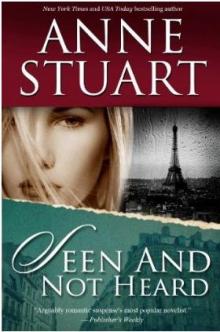 Seen and Not Heard
Seen and Not Heard Never Marry a Viscount
Never Marry a Viscount Heartless
Heartless The Devil's Waltz
The Devil's Waltz Hidden Honor
Hidden Honor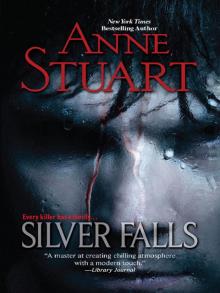 Silver Falls
Silver Falls Fire and Ice
Fire and Ice Nightfall
Nightfall Never Trust a Pirate
Never Trust a Pirate The Soldier and the Baby
The Soldier and the Baby Still Lake
Still Lake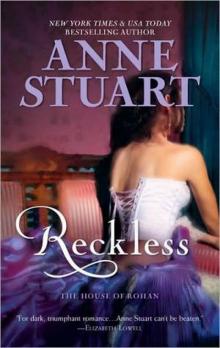 Reckless
Reckless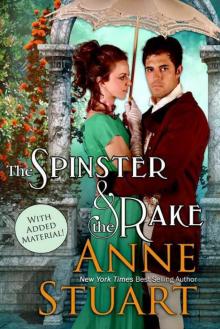 The Spinster and the Rake
The Spinster and the Rake Winter's Edge
Winter's Edge At the Edge of the Sun
At the Edge of the Sun Into the Fire
Into the Fire Night of the Phantom
Night of the Phantom Ritual Sins
Ritual Sins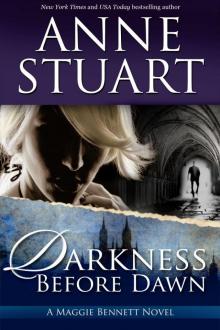 Darkness Before the Dawn
Darkness Before the Dawn Against the Wind
Against the Wind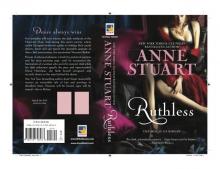 Ruthless
Ruthless The Catspaw Collection
The Catspaw Collection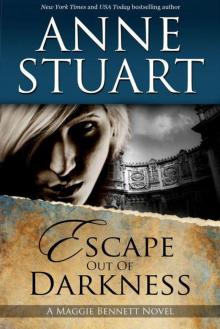 Escape Out of Darkness
Escape Out of Darkness The Widow
The Widow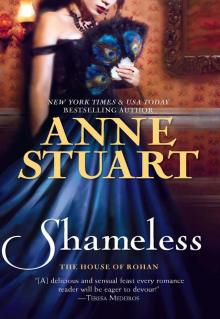 Shameless
Shameless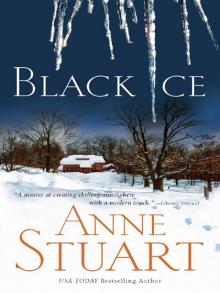 Black Ice
Black Ice Breathless
Breathless Shadows at Sunset
Shadows at Sunset Falling Angel
Falling Angel Housebound
Housebound Cold as Ice
Cold as Ice The Wicked House of Rohan
The Wicked House of Rohan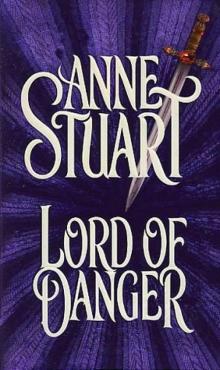 Lord of Danger
Lord of Danger The High Sheriff of Huntingdon
The High Sheriff of Huntingdon Wildfire
Wildfire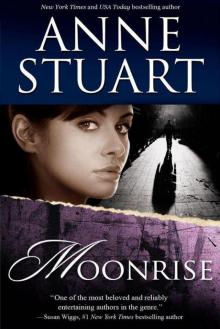 Moonrise
Moonrise The Demon Count's Daughter
The Demon Count's Daughter Date With a Devil
Date With a Devil To Love a Dark Lord
To Love a Dark Lord Driven by Fire
Driven by Fire Special Gifts
Special Gifts Ice Storm
Ice Storm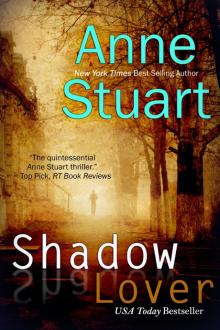 Shadow Lover
Shadow Lover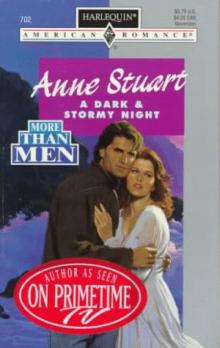 A Dark & Stormy Night
A Dark & Stormy Night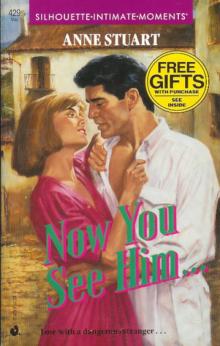 Now You See Him...
Now You See Him... Lady Fortune
Lady Fortune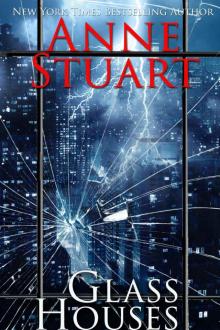 Glass Houses
Glass Houses A Rose at Midnight
A Rose at Midnight Prince of Swords
Prince of Swords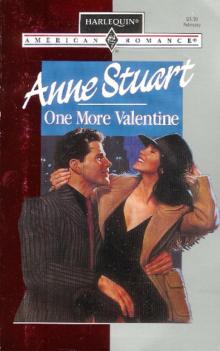 One More Valentine
One More Valentine Return to Christmas
Return to Christmas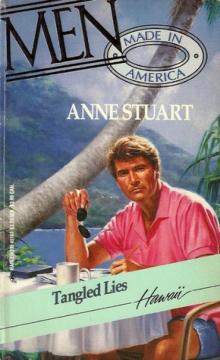 Tangled Lies
Tangled Lies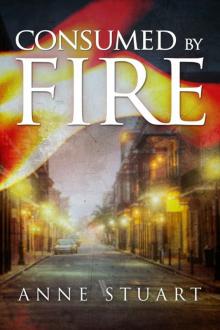 Consumed by Fire
Consumed by Fire The Fall of Maggie Brown
The Fall of Maggie Brown Wild Thing
Wild Thing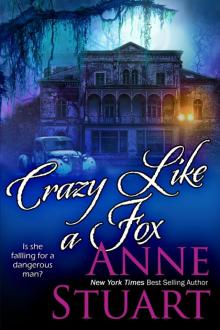 Crazy Like a Fox
Crazy Like a Fox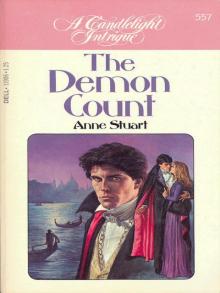 The Demon Count
The Demon Count Prince of Magic
Prince of Magic Wildfire (The Fire Series Book 3)
Wildfire (The Fire Series Book 3)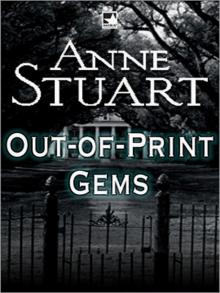 Anne Stuart's Out-of-Print Gems
Anne Stuart's Out-of-Print Gems Shadow Dance
Shadow Dance Under an Enchantment: A Novella
Under an Enchantment: A Novella Demonwood
Demonwood Blue Sage (Anne Stuart's Greatest Hits Book 3)
Blue Sage (Anne Stuart's Greatest Hits Book 3)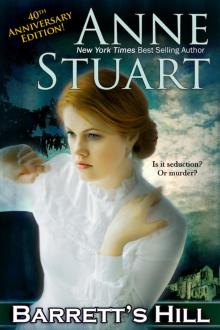 Barrett's Hill
Barrett's Hill Angel's Wings (Anne Stuart's Bad Boys Book 5)
Angel's Wings (Anne Stuart's Bad Boys Book 5)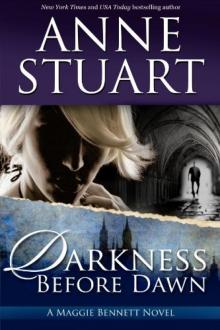 Darkness Before Dawn
Darkness Before Dawn The Right Man
The Right Man The Houseparty
The Houseparty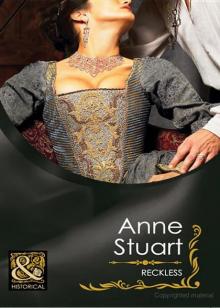 Reckless_Mills & Boon Historical
Reckless_Mills & Boon Historical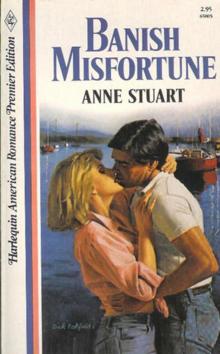 Banish Misfortune
Banish Misfortune Angel's Wings
Angel's Wings Chain of Love
Chain of Love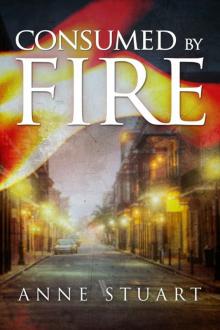 Consumed by Fire (The Fire Series)
Consumed by Fire (The Fire Series)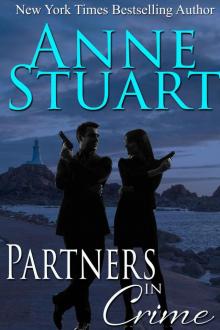 Partners in Crime (Anne Stuart's Bad Boys Book 4)
Partners in Crime (Anne Stuart's Bad Boys Book 4) The Soldier, The Nun and The Baby (Anne Stuart's Greatest Hits Book 2)
The Soldier, The Nun and The Baby (Anne Stuart's Greatest Hits Book 2)